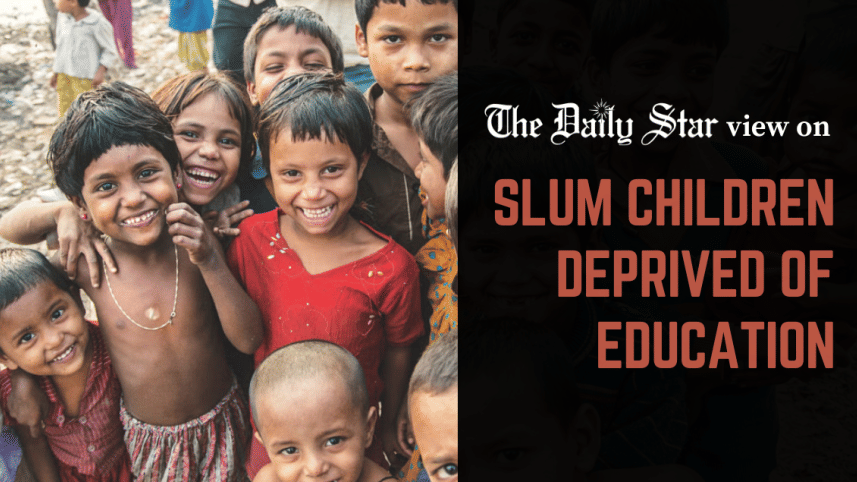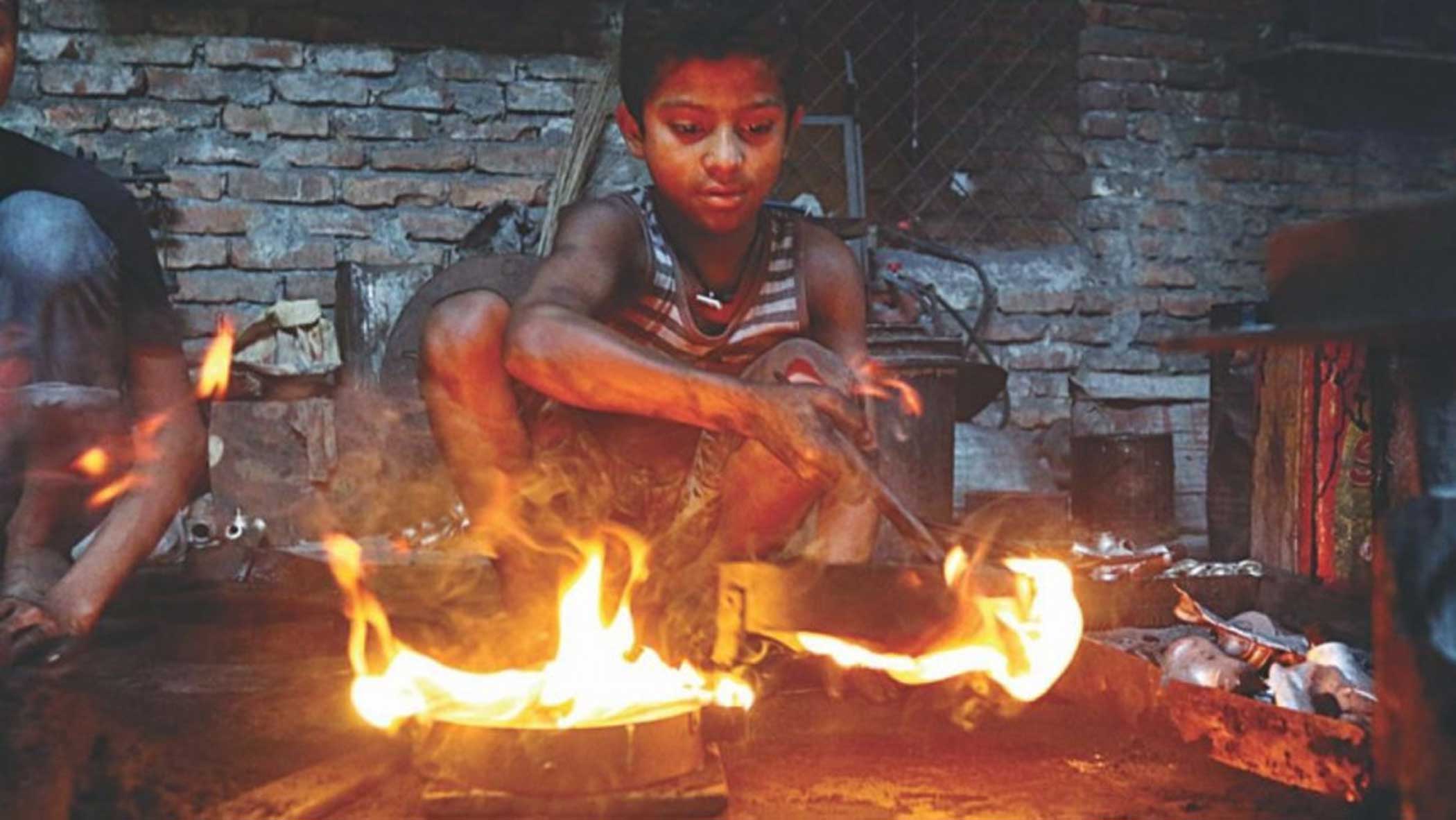Slum children need special attention

The crisis of education in urban slums is nothing new, but following the pandemic, it seems to have come back with a vengeance. As per a report by The Daily Star, many schools that shut down during the pandemic has never since reopened. This as well as their inability to be readmitted in other schools, because of financial constraints, have forced many children to drop out. Consequently, many have been forced into labour or early marriage at an age when they should be in classrooms, preparing for a brighter future.
Our report presents a compelling case based on the situation in several slums in Dhaka, highlighting the unfortunate trade-off between education and survival that these children face. One of them is 12-year-old Rasel, whose family lives in Karail. A brilliant student who stood first in second grade, his school was closed during the pandemic, causing him to drop out. He now babysits his younger siblings while their mother works outside. Like him, Bayzid, whose family lives in Bhashantek, also dropped out after second grade, and now works as a vegetable vendor. It is likely that these children will never go back to schools.
Although we don't know the number of slum children who fell through the cracks during the pandemic, it is believed to be significant. They sit at the top of the pile of vulnerable students, and the end of the pandemic has done little to improve their odds. The financial strain their families continue to face is a stark reminder that educational costs are a significant deterrent for children's enrolment. NGO-run schools have been somewhat helpful in addressing the crisis, but the challenges they face in terms of funding shortages and operational uncertainties remain daunting. Evidently, the number of schools and learning centres in Dhaka's slums has declined post-pandemic, even though their demand is much higher. Even the Bureau of Non-Formal Education – which has a special programme that offers primary education with a shortened syllabus – hasn't had much success in changing this scenario.
The continued education crisis in slums is a result of many factors, but this is not a battle we can afford to lose, as it has far-reaching consequences for the future of these children, their families, and society at large. We urge the authorities and all stakeholders to take concerted action to address this situation.



 For all latest news, follow The Daily Star's Google News channel.
For all latest news, follow The Daily Star's Google News channel. 

Comments